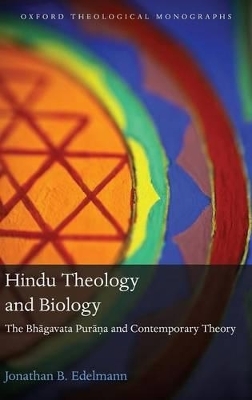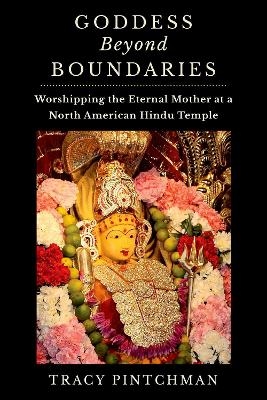
Hindu Theology and Biology
Oxford University Press (Verlag)
978-0-19-964154-3 (ISBN)
Western intellectual history has benefited from a rich and sophisticated conversation between theology and science, leaving us with centuries of scientific and theological literature on the subjects. Yet the Hindu traditions are virtually unused in responding to the challenging questions raised in the science and religion dialogue. This book replies to the sciences by drawing from an important Hindu text called the Bhāgavata Puraṇa, as well as its commentaries, and philosophical disciplines such as eaṁkhya-Yoga.
One of the greatest challenges facing Hindu traditions since the nineteenth century is their own self-understanding in light of science and technology. Hoping to establish the conceptual foundations for a mutually beneficial dialogue between the Hindu Theologies and the Western Sciences, Jonathan B. Edelmann faces that challenge directly. Since so much of the Hinduism-science discussion is tangled in misconstrual, Edelmann clarifies fundamental issues in each tradition, for example the definition of consciousness, the means of generating knowledge and the goal of knowledge itself. He argues that although Darwinian theory seems to entail a materialistic view of consciousness, the Bhāgavata's views provide an alternative framework for thinking about Darwinian theory. Furthermore, Edelmann argues that objectivity is a hallmark of modern science, and this is an intellectual virtue shared by the Bhāgavata. Lastly, he critiques the view that science and religion have different objects of knowledge (that is, the natural world vs. God), arguing that many Western scientists and theologians have found science helpful in thinking about God in ways similar to that of the Bhāgavata.
Preface ; Introduction: The Purpose and Possibility of Dialogue ; A Dialogue Between Science and Religion? ; The Meaning of Bhagavata Theology ; Types of Biological Texts ; Anatomy of a Worldview ; 1. Setting the Scene ; Bhagavata Purana Overview ; Contemporary Evolutionary Theory Overview ; 2. Ontology of Body, Mind and Consciousness ; Ontology of the Bhagavata ; Physicalism: Views From Darwin and Neuroscience ; Reconciling Physicalism and the Ontology of the Bh?gavata ; 3. Toward a Bhagavata Theory of Knowledge ; The Instruments of Knowledge ; Relationships Between the Instruments of Knowledge ; Testimony, Nonsensory Perception and Practice ; 4. The Study of Nature as Vaishnava-Yoga ; Cosmic Body ; Cosmogony ; Cosmography ; 5. Seeing Truth, Hearing Truth ; Objectivity in the Natural Sciences ; Testimony in the Sciences ; Transforming Vaishnava Theology: Reflections on Hermeneutics ; 6. Moving from Nature to God ; From Scientific Theory to God ; Closer Comparisons ; Science as a Form of Religious Practice ; Closer Comparisons ; Conclusion
| Reihe/Serie | Oxford Theological Monographs |
|---|---|
| Verlagsort | Oxford |
| Sprache | englisch |
| Maße | 162 x 240 mm |
| Gewicht | 560 g |
| Themenwelt | Geisteswissenschaften ► Philosophie |
| Geisteswissenschaften ► Religion / Theologie ► Hinduismus | |
| Naturwissenschaften ► Biologie ► Evolution | |
| Naturwissenschaften ► Biologie ► Zoologie | |
| ISBN-10 | 0-19-964154-4 / 0199641544 |
| ISBN-13 | 978-0-19-964154-3 / 9780199641543 |
| Zustand | Neuware |
| Haben Sie eine Frage zum Produkt? |
aus dem Bereich


